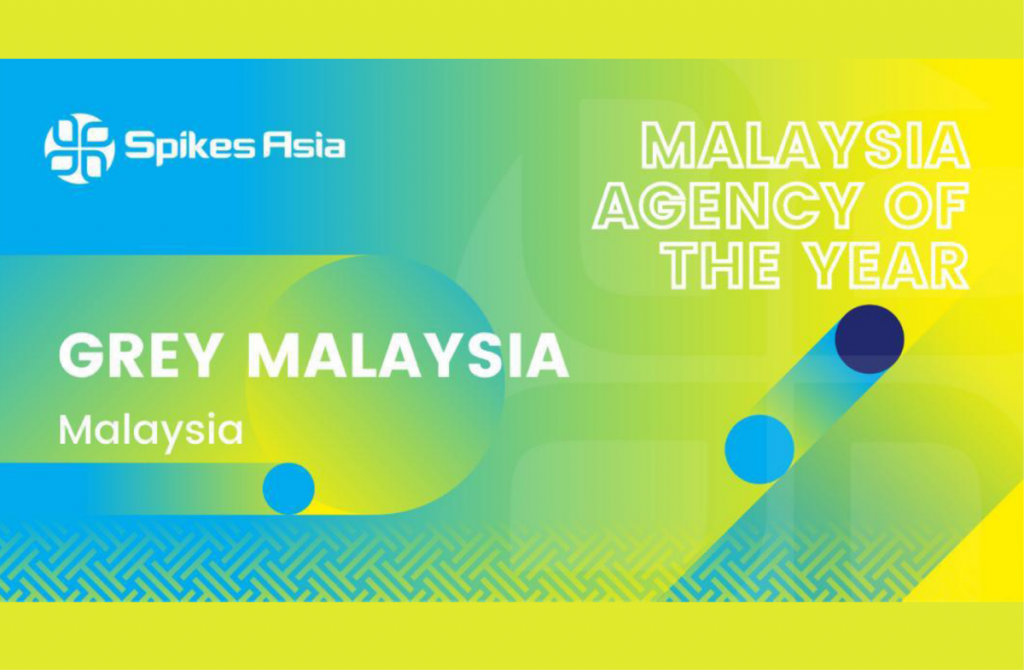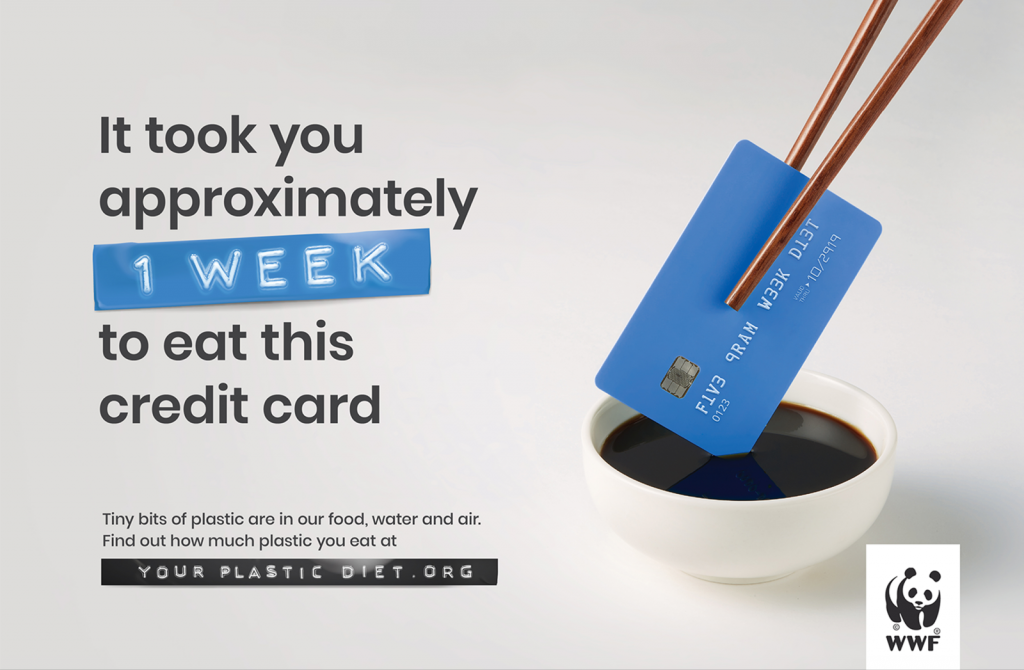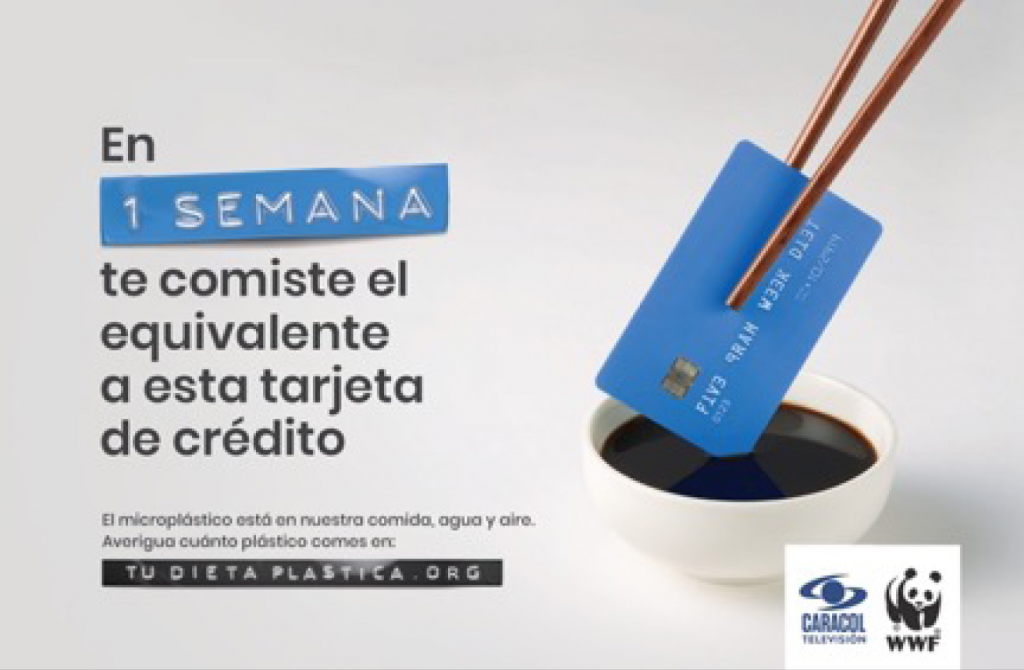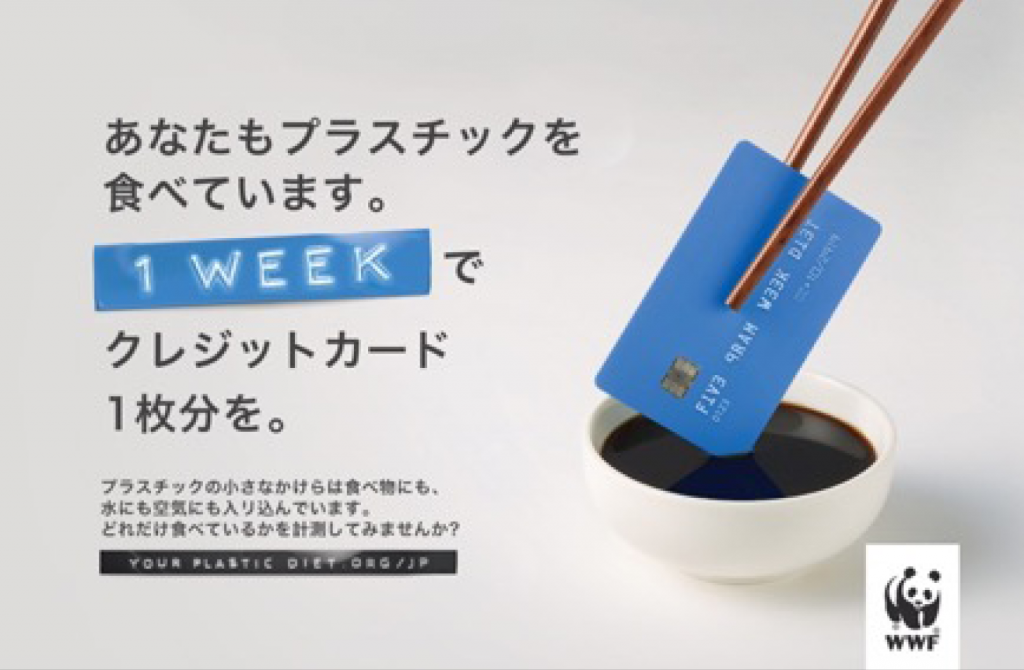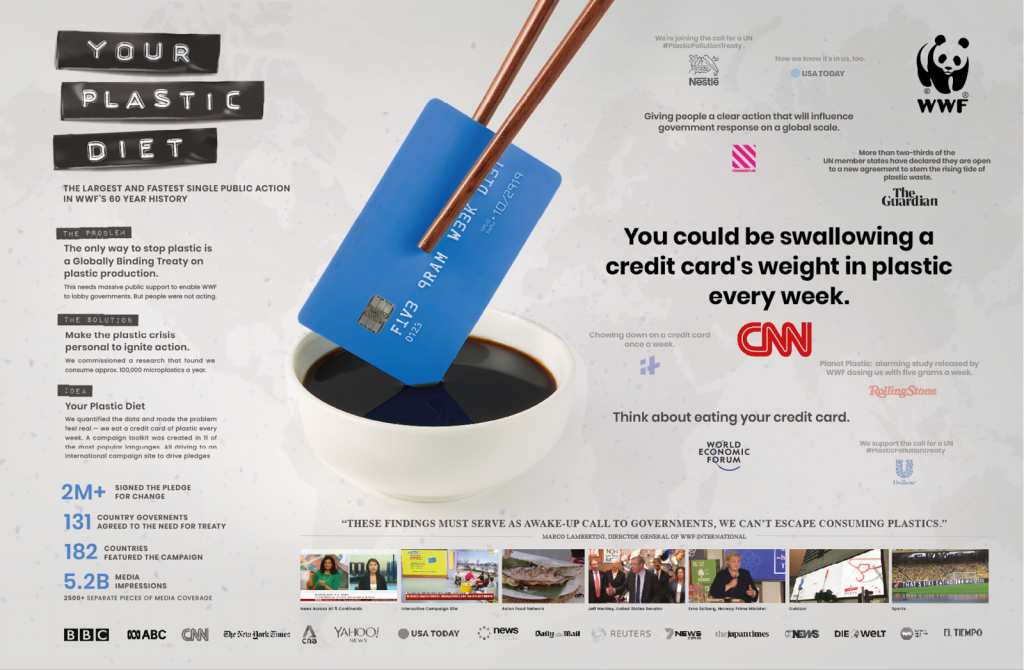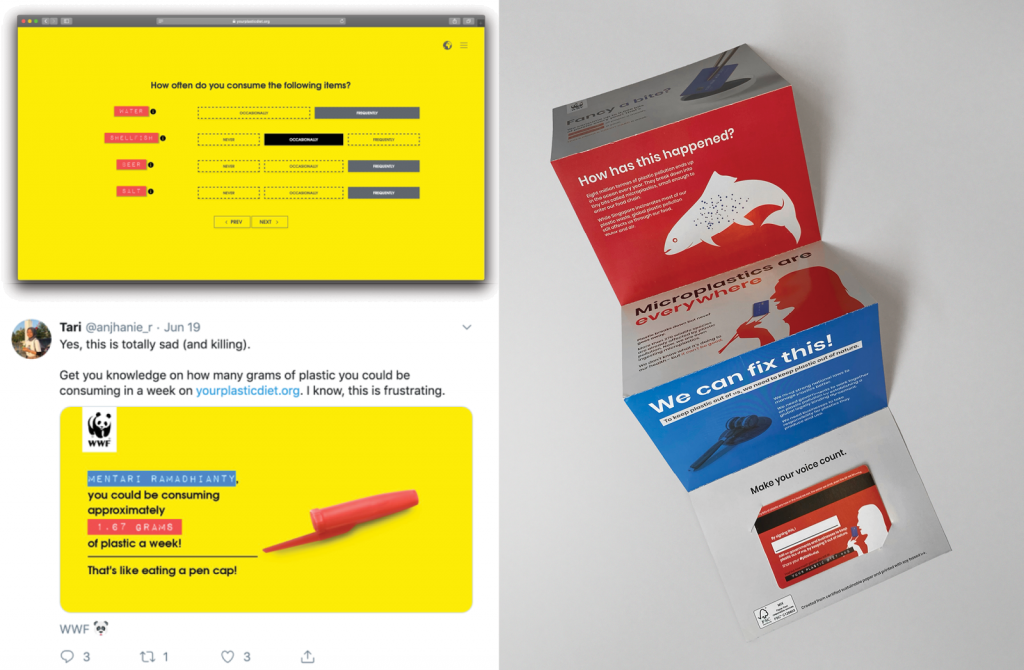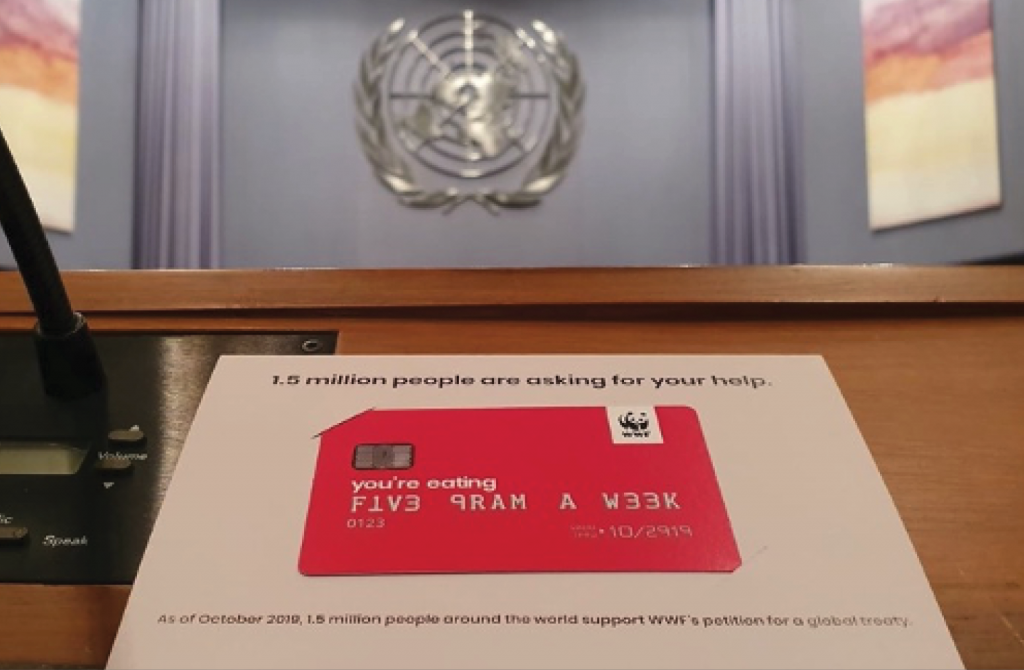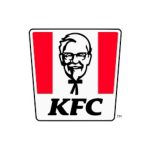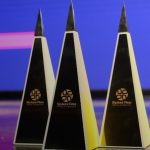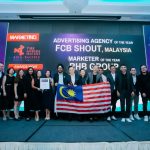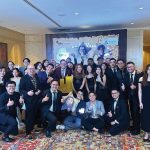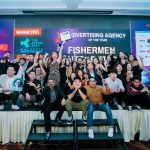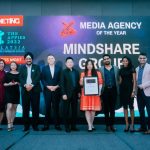Grey Malaysia won Gold, 2 Silver and 2 Bronze for its WWF’s Plastic Diet campaign, which also sweeps 2 Gold and Silver awards at Tangrams Strategy & Effectiveness @Spikes.
We talk to Graham Drew, Chief Creative Officer at Grey Group Malaysia and 2020 Campaign Creative Person of the Year SEA, about the campaign…..
The Story of Your Plastic Diet
How do you create a campaign that influences over 80 national governments, 15,000 lawmakers, generating 2 million pledges from people from 181 countries?
By making it personal for all 7.5 billion people on earth.
WWF’s objective was to get governments around the world to sign a binding treaty against single use plastics. This also included policy-influencing bodies such as the United Nations and its 97 member nations.
… WE NEEDED TO CREATE A SIMPLE, YET COMPELLING CALL-TO-ACTION THAT MADE PEOPLE FEEL LIKE THEY COULD MAKE A DIFFERENCE IN ORDER TO PRESSURE LAWMAKERS…
We turned an abstract environmental problem into a relatable (digestible) human one by making the data vivid and universally understood – demonstrating to people they’re now involuntarily consuming plastic (pollution).
Decoding the Science
The University of Newcastle was commissioned to analyze scientific studies about how plastic was impacting human’s personal environment. After six-months of study and peer-review, the research found that the average human consumes approximately 100,000 microplastics every year.
Quantifying the Diet
100,000 microplastics equates to approximately 250 grams of plastic a year which means people are ingesting 5 grams of plastic pollution every week. What plastic object weighs 5 grams and is ubiquitous around the world, with 20 billion of them in use?1 A credit card.
The strategy needed to address three barriers:
Make plastic PERSONAL: It had to be shifted from an abstract planetary problem, into a relatable human issue by making it universally understood.
Make plastic vivid and UNFORGETTABLE: Plastic in the ocean is out of sight and out of mind. If plastic’s damage could be easily put from people’s thoughts, we had to create reminders in everyday life and prove plastic isn’t just ‘magicked away’ when you put the bins out.
Make plastic ACTIONABLE: The problem feels so huge, it feels impossible to act upon. We needed to create a simple, yet compelling call-to-action that made people feel like they could make a difference in order to pressure lawmakers.
With a shoestring budget and ambitious KPIs we decided to phase the campaign in four parts.
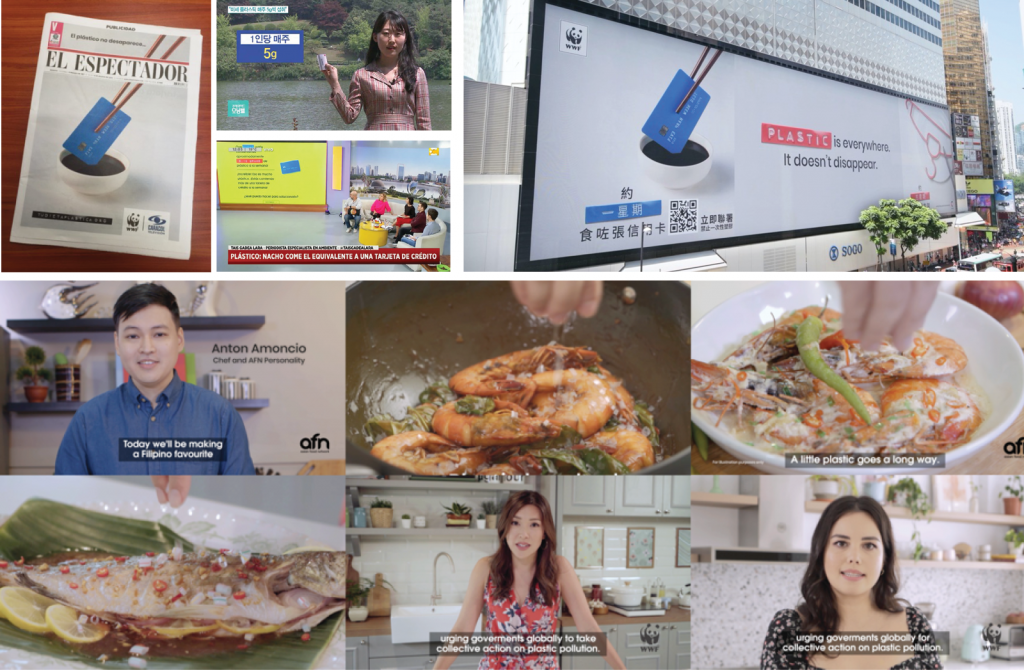
GAIN CREDIBILITY & CAMPAIGN-ABILITY
Decoding the Science
The University of Newcastle was commissioned to analyze scientific studies about how plastic was impacting human’s personal environment. After six-months of study and peer-review, the research found that the average human consumes approximately 100,000 microplastics every year.
Quantifying the Diet
100,000 microplastics equates to approximately 250 grams of plastic a year which means people are ingesting 5 grams of plastic pollution every week. What plastic object weighs 5 grams and is ubiquitous around the world, with 20 billion of them in use?2 A credit card.
YOU ARE EATING A CREDIT CARD A WEEK.
By quantifying the huge amount of data into a single fact and visualizing it into a universally recognizable symbol, this direct and single-minded fact became the center of gravity for the entire campaign.
It made the statistics personal and ACTIONABLE and plastic pollution UNFORGETTABLE. It made the plastic problem PERSONAL – this is a piece of plastic that has people’s name on it, it’s with them every day. With this single, universal scientific fact, we could turn the billions of credit cards in people’s pockets into a personal and confronting reminder of the urgent need for change.
… WHAT PLASTIC OBJECT WEIGHS 5 GRAMS AND IS UBIQUITOUS AROUND THE WORLD, WITH 20 BILLION OF THEM IN USE? A CREDIT CARD…
LAUNCH THE DIET – create an attitude shift at a cultural and individual level
Your Plastic Diet was announced to the world’s media via a press conference at WWF’s Singapore HQ. A campaign toolkit was created in 11 of the most spoken global languages. Key visuals of our campaign device featuring the Your Plastic Diet card and films dramatized how much plastic we were ingesting and explained the issue.
From the Philippines to Hong Kong to Colombia, Your Plastic Diet’s attention grabbing key visual became the talking point. Global news agencies all around the world (CNN, BBC, Reuters, Sky, NBC, Fox News, etc) captured and spread the news further. The absolute best part was every single one of these comms was earned media.
As the weeks progressed, WWF offices used the pro-bono media spaces from media owners who so were moved by the campaign that they were willing to provide prime media space and slots to further enlarge the campaign’s reach and impact.
EXPERIENCE THE DIET – impact behaviour by placing the diet in people’s lives
Plastic Diet was activated across Asia and around the world:
Across 11 Asian countries, the Asian Food Network produced indents with cooking personalities that surprised people as they sprinkled plastic on their dishes. The chefs then each addressed the camera and directly called their fans to sign the WWF petition to help stop plastic entering all of our daily diets.In Malaysia, announcements during the Malaysian Cup Final soccer match informed 80,000 fans it would take them 10 seasons to eat the plastic seat they sat on.
In Singapore, people saw how much plastic was in their diet when they visited public toilets.
In Hong Kong, the film was played on the region’s largest digital screen during times of the day people would be eating.
In Japan, Plastic Diet was the focus of a 45-minute current affairs show on prime-time TV.
All activity pushed people to an interactive campaign website. Based on diet and geography, people could take a test to see how much plastic they were likely ingesting a week.
After feeling the personal impact of plastic pollution, people were compelled to sign the global petition, Finally, a personal protest post with their Plastic Diet results was generated which people could share.
LOBBY WITH THE DIET – reach lawmakers and generate commitment for change
Plastic Diet gave WWF a platform to interrupt and influence political systems. Packs featuring a physical version of the campaigns’ card, along with the massive weight of the public support via the signatures, were used by WWF teams to engage politicians, civil servants and governments in conversations, meetings, summits, and conferences, from the G20 to the UN throughout 2019 and 2020. Plastic Diet at the UN Environment Assembly in Bangkok, November 2019:
1: Results
Result: 5.2bn3 – 300% of target; 600,000 organic posts – 600% of target.
Over 400,000 pieces of media coverage were generated after 45 separate WWF offices activated the campaign. WWF has never seen earned media impact of this scale in its entire 60-year history.
Over 600,000 organic posts about Your Plastic Diet were created, with a 44% increase (1.6m to 2.3m) 4 in global conversation about plastic pollution comparing the five-month campaign period to the prior five months.
2: Behaviour
Result: 2.03 million supporters, 200% of target; Pledges from 181 countries, 320% of target.
Plastic Diet became WWF’s largest and fastest growing single public action in its’ 60-year history. It generated more impact than similar campaigns recognized for effectiveness.5
3: Action
Result: 131 governments have publicly called for an agreement on plastic or agreed to consider it – 135% of target.
“More than two-thirds of UN member states have declared they are open to a new agreement to stem the rising tide of plastic waste.” The Guardian.
Grey Team
Graham Drew,
Chief Creative Officer
Andrew Fong, Heng Thang Wei
Creative Directors
Selva Ganapathy
Copywriter
Kevin Wong, Ralve Khor
Art Directors
Suzy Chiang
Producer
Jo Yau
General Manager
Marcus SK
Brand Director
Vivian Khoo
Account Executive
Huma Qureshi
Regional Director PR & Corp Comms APAC
Production Team
MFX Sdn. Bhd.
Post Production
Glass Fin (KL)
Astatika (KL)
Sound Production
Maverick AV Sdn. Bhd.
[i] The Nilson Report; 2018 [ii] WWF media monitoring via Meltwater [iii] WWF media monitoring via Meltwater [iv] WARC Case studies: Plastic Oceans International / Trash Isles; Greenpeace / There’s a Rang-tan in my Bedroom; Greenpeace / Dead Whale
MARKETING Magazine is not responsible for the content of external sites.



